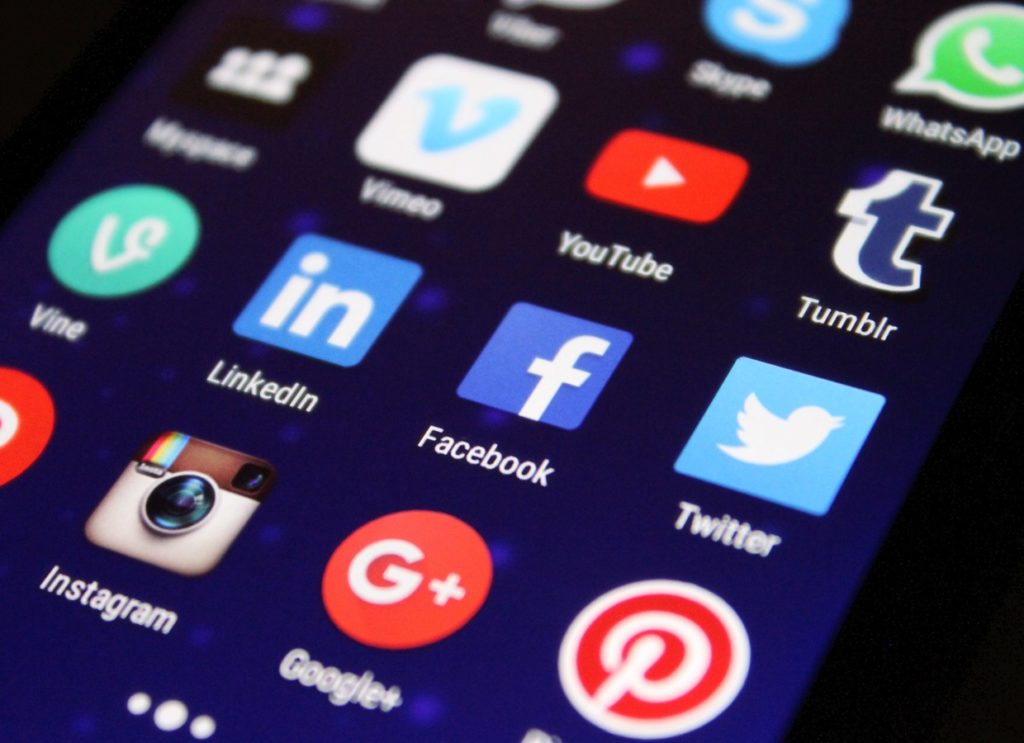A year of coronavirus-related lockdowns has prompted a significant uptick in people’s social media usage across all age groups, according to a recent study by Sortlist, a Belgian-based platform that brings together companies with marketing agencies and creatives who fit their needs.
They surveyed 1,000 people in France, Belgium, Germany, Spain and the Netherlands in order to find out how different generations were using social networks in response to the Covid-19 pandemic.
“It would be negligent of us to deny that this pandemic has had an enormous effect on human behaviour across many different fields,” Anne-Gaëlle Sy, Content Manager for Sortlist UK, told The Brussels Times.
What Sy and other researchers learned was that social media usage increased overall by 78% among surveyed Millennials and Gen Z during the pandemic, and Baby Boomers also increased the amount of time they spend on apps like Facebook, Instagram, Twitter and Youtube, with many joining the platforms for the first time during the coronavirus-related lockdowns.
“We saw a lot of incredibly interesting data,” said Sy, who noted that while an increase in usage among young people wasn’t particularly surprising, the number of people over the age of 65 who joined in was unexpectedly high.
“What we thought was really fascinating was that for Baby Boomers, one in four or about 25 percent joined in the past year, but in Belgium it was about 30 percent, or one third,” Sy said.
The study also found that reasons for using social media shifted.
“Social media - back in the day when it first started - meant that for teenagers, no longer was it that they could only talk with their friends at school. You could go home and talk to your friends 24/7. We were using social media for social interaction,” Sy explained.
“But now we've noticed that social media is being used for entertainment. It’s becoming an entertainment escape.”
While it may not have been their primary purpose for using social media, across all generations, the majority of respondents did agree that social networks helped them maintain a social life during the pandemic.
The slew of newcomers is reflected in another report from Hootsuite, a social media management platform, which recorded a total increase of 300 million new social media users between April 2019 and April 2020, when Covid-19 lockdowns all but eliminated chances for face-to-face socialisation.
“It was interesting to see this change of social media being used back in the day mostly for social interactions, and now becoming full-time entertainment,” said Sy.
And the younger generations have no intention of cutting back.
“What was also really surprising was that although Millennials and Gen Z are increasing their use, they’re also not really thinking about lowering that use or moving away from social media,” said Sy.
While 32% of people under the age of 35 did say they want to decrease their use of social networks, 72% of Millennial and Gen Z users say they have no such plans.
“The pandemic really put the gas on our consumption of social media, and unfortunately we’ve kind of fallen into this cycle and it doesn’t seem like many want to decrease it for the time being,” Sy said.
When it comes to the format that social media escapism takes, around 40% of the survey’s respondents said they prefer video content over all other content formats, like reading or looking at images. There were generational divides along those lines, as well.
“The most used format of digital content for Millennials and Gen Z is video, so marketing agencies and strategists are now having to turn to visual content to reach them. But Baby Boomers are still way more into the written content,” said Sy.
For under-35s, the favourite platform is YouTube, while Facebook reigns as number one among Boomers.
And in terms of content focus, the number one topic of interest people cited was science, with 29% of their shared posts in the last year being about science in some way.
Incorrect or misleading information related to science has spread like wildfire throughout the pandemic, prompting some platforms like Instagram and Twitter to automatically flag posts related to vaccines or the virus with links to official government websites on the topics, and a warning about misinformation.
Research from Harvard University found that the “ubiquity of social media has made it easier to spread or even create COVID-19 falsehoods, making the work of public health officials harder.”
For better or for worse, the pandemic has propelled the use of digital technology - not only when it comes to consumption of goods and services, but also in terms of our interactions with others, the Sortlist study summarizes.
“Our relationship with digital tools and social networks has changed, as have the reasons why we use them.”

